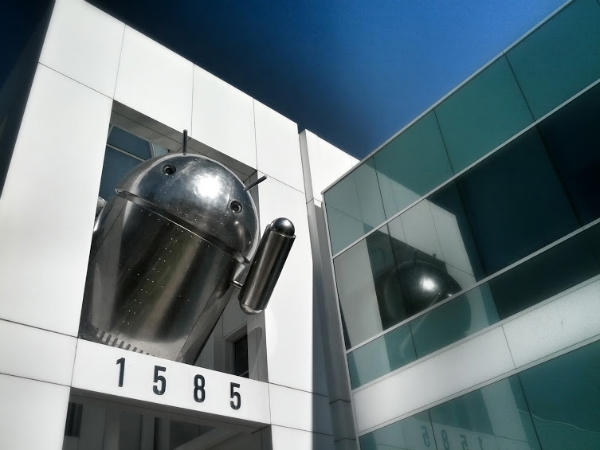Android and Chrome OS on the road to unification: Sundar Pichai becomes the new head of Android
About an hour ago, Google’s co-founder and its CEO, Larry Page, said on the official blog of Google that the founder of Android Inc., and then the head of Google’s mobile division, Andy Rubin, was leaving his post, yielding to Sundar Pichai. This person is not so well known to the Russian audience, but he has several years of managing the Chromium project, for it was he who, along with Lars Buck (co-author of the JavaScript engine of Google V8), announced the release of Google Chrome in 2008. Apparently, this is another step towards the integration of projects Chromium OS and Android OSP, which Sergey Brin has been talking about for several years.

In the aforementioned post, Larry recalls his first meetings with Andy Rubin, which eventually led to the creation of one of the largest consortia managing the free project: the Open Handset Alliance. Now, over the development and promotion of Android employs 60 companies that have released more than 750 million devices that have access to the content distribution system Google Play (previously Android Market). Users have already downloaded 25 billion copies of various programs from the Play application store, which is pretty good. This is the result of the work of Andy Rubin, who turned one of the projects of mobile systems into the most popular platform for smartphones. Now Rubin decided to leave his post, deciding to take up other projects within the company.
He will be replaced by Sundar Pichai, who has achieved no less success as a project manager: Google Chrome, according to numerous analytical agencies, is the most popular browser, the source code of the Chromium project became the basis for a large number of third-party programs, including authorship of direct competitors Does Google still know about Yandex Browser? Google Chrome OS cannot boast with such success, but it also grows: in six months the traffic generated by this system increased by 700%, and the head of Acer was shocked by the demand for Chromebooks. Now, apparently, we can expect the process of merging Android and Chrome OS systems, which already have prerequisites, such as a chrome robot (pictured above) on the Google campus, Google Now support in Chrome, and CROS_WORKON_SUBDIR = "android-files" strings in source code Chromium. On Google I / O, a rich program can wait for us. It is a pity that all conference tickets scattered in 49 minutes.

In the aforementioned post, Larry recalls his first meetings with Andy Rubin, which eventually led to the creation of one of the largest consortia managing the free project: the Open Handset Alliance. Now, over the development and promotion of Android employs 60 companies that have released more than 750 million devices that have access to the content distribution system Google Play (previously Android Market). Users have already downloaded 25 billion copies of various programs from the Play application store, which is pretty good. This is the result of the work of Andy Rubin, who turned one of the projects of mobile systems into the most popular platform for smartphones. Now Rubin decided to leave his post, deciding to take up other projects within the company.
He will be replaced by Sundar Pichai, who has achieved no less success as a project manager: Google Chrome, according to numerous analytical agencies, is the most popular browser, the source code of the Chromium project became the basis for a large number of third-party programs, including authorship of direct competitors Does Google still know about Yandex Browser? Google Chrome OS cannot boast with such success, but it also grows: in six months the traffic generated by this system increased by 700%, and the head of Acer was shocked by the demand for Chromebooks. Now, apparently, we can expect the process of merging Android and Chrome OS systems, which already have prerequisites, such as a chrome robot (pictured above) on the Google campus, Google Now support in Chrome, and CROS_WORKON_SUBDIR = "android-files" strings in source code Chromium. On Google I / O, a rich program can wait for us. It is a pity that all conference tickets scattered in 49 minutes.
')
Source: https://habr.com/ru/post/172637/
All Articles